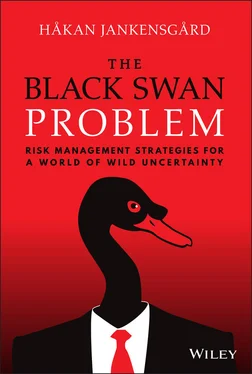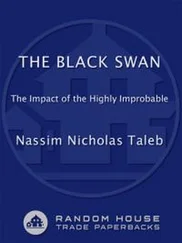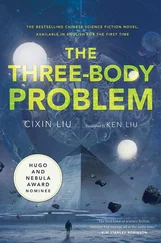In many cases, we lack data that we can explore for mapping out the tail of a random process. In this kind of setting, uncertainty tends to be wildly out of the gate. Technological innovation fits right into this picture, because it brings novelty and injects it into the existing, already volatile, world order. New dynamics are set in motion, triggering unintended consequences and side effects that ripple through the system in an unpredictable fashion. Because we keep innovating, we also keep changing the rules of the game, forever adding to the complexity. Two Black Swans that have sprung from the onward march of technology are the emergence of the internet and the more recent invasion of social media and mobile phones into our lives. There was no existing dataset that we could have studied prior to them that might have suggested that such transformations of our reality were about to happen. Or, more importantly, that they were even possibilities at all. To appreciate how technologies that we are completely immersed in today and take for granted are actually Black Swans, cases of wild uncertainty, consider the words of Professor Adam Alter of New York University:
‘Just go back twenty years [to 2000] … imagine you could speak to people and say, hey, you are going to go to the restaurant and everyone's going to be sitting isolated and looking at a small device, and then they're going to go back home and spend four hours looking at that device, and then you're going to wake up in the morning and look at that device … and people are going to be willing to have body parts broken to preserve the integrity of that device … people would say that is crazy' 9
Alter's thought experiment of going back 20 years in time and imagining talking to people about something highly consequential that later happened is a useful one for deciding whether something is to be considered a Black Swan. If you imagine their reaction to what you describe would be that it is ridiculous or inconceivable, chances are that you have found one.
To continue our story, it becomes clear that any characterizations of random processes will be increasingly subjective as we move away from data‐driven approaches. We leave the world of inference from data and enter the realm of the imagination. Our faculties for reasoning and logic can partly make up for a lack of data – we can figure certain stuff out. When the imagination fails us, we have those truest of Black Swans, the inconceivable ones, the ‘unknown unknowns’. We have already mentioned the 9/11 attack as being in this category. In a similar way, the collapse of the Soviet Union was utterly unthinkable to the Western intelligentsia and political establishment at the time. George Kennan, an American diplomat and historian, commented as follows, based on a review of the history of international affairs in the modern era:
‘[It is] hard to think of any event more strange and startling, and at first glance inexplicable, than the sudden and total disintegration and disappearance … of the great power known successively as the Russian Empire and then the Soviet Union.’ 10
That is, nobody expected the Soviet Union to crumble at this point in time. One of the most crucial aspects of Black Swans is that they are always measured against expectations and prior knowledge. This is an underappreciated point. As noted, most people use the term loosely, largely equating it with high‐impact outcomes that were somehow shocking to us. With the considerable difference, perhaps, that calling it a Black Swan provides an air of complete unpredictability and that, therefore, one is not to be blamed for what just happened. Getting tail risk wrong may be an indictable offense. But Black Swans? They seem to absolve everyone of any responsibility for what went down, because nobody could have seen it coming.
The habit mentioned earlier of equating Black Swans with ‘mere’ tail risk misses out on what is perhaps its most important dimension, namely the expectations we had going into the situation. Because of the role of expectations, what is a Swan to you may not be one to me. It is, in Taleb's preferred terminology, a ‘sucker's problem'. Naïve and ignorant individuals are more prone to experience Black Swans simply because they fail to form realistic expectations. To illustrate this idea, Taleb uses the example of a turkey somewhere in the US as Thanksgiving approaches. Having walked about generously fed for its entire life, the turkey is unsuspecting of the calamity that is about to befall it. The butcher, however, is obviously not unsuspecting, and he is therefore not in for a Black Swan – exactly the same event, but wildly diverging expectations.
The relativity of Black Swans has wide implications. Whenever a high impact event occurs, this may or may not be shocking. The more interesting discussion to be had is about who was attuned to this possibility and who was caught out? A Black Swan always requires a vantage point. To the suckers, it appears as if the tail just moved, but not necessarily to someone who sees the world a bit differently. Whenever we hear the term Black Swan mentioned, therefore, what should immediately spring to mind is the follow‐up question ‘Well, a Black Swan to whom?’
The Covid‐19 pandemic is a case in point. Was this a Black Swan? It certainly meets the criterion of being a highly consequential event. Interestingly, Taleb himself has gone on record saying that C‐19 was not a Black Swan. His argument is that there is a history of pandemics, based on which popular films were made well before C‐19. A basic analysis of the connectivity of the modern world (i.e. means of travel) would also have pointed to the obvious plausibility of a global pandemic. Respected institutions issued reports warning of global pandemics already in the early 2000s. Bill Gates gave a thoughtful talk on the subject in 2015, also issuing words of warning for those willing to listen. 11 These considerations may well have sensitized students of history who also had the wisdom to internalize the possibility that this could happen in their own lifetime.
However, casual observation suggests that most of us have not reached such a state of immaculate wisdom. Many do not read books and have never heard of connectivity. All of our egocentric biases make going into denial about pandemics the easiest thing in the world, something which Albert Camus, the French philosopher, understood well:
‘Everybody knows that pestilences have a way of recurring in the world; yet somehow we find it hard to believe in ones that crash down on our heads from a blue sky.’ 12
For most of us, watching a film about something makes it seem even more unreal. It puts it in the same category as Bruce Willis drilling holes in meteorites about to smash into Earth – pure entertainment. 13 If so, consuming films may turn us into even bigger suckers because they warp our expectations. Since we are now discounting zombies heavily as just movie entertainment, woe on us the day they show up on the doorstep, because we have not prepared one bit for that eventuality!
At any rate, even if we had read about pandemics and realized that the probability of another one is clearly not zero, there is something about the magnitude of the consequences. Just like the ‘business‐as‐usual’ risk, Black Swans have two dimensions: possibility and consequence. Granting the possibility of something is a binary situation: a recognition that such a thing could happen (as opposed to saying there is no way it ever could). Even if we are willing to entertain the possibility of something, we could still be suckers with respect to the consequences once the event is unleashed. This is why C‐19, for most people, was a genuine Black Swan. Pandemics, sure, I think I heard about that in school. But who could have imagined entire countries shutting down? Spending months on end in lock‐downs? Tourism coming to a near stand‐still? Mad dashes – knife fights even – for toilet rolls? It would take a pretty serious student of history, and one with a very fertile imagination at that, to envision the severity of the consequences along so many paths. Therefore, for a substantial majority of the planet's inhabitants, C‐19 was a Black Swan. Along the same lines, it would be questionable not to label the French Revolution with its decidedly wild consequences a Black Swan just because there had been revolutions prior to that.
Читать дальше












